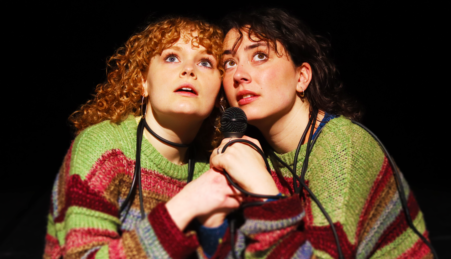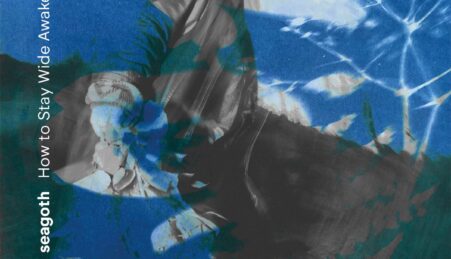By Grace Atkinson
Manchester Metropolitan’s RAH! programme and Research Group for Film, Languages and Media in Education (FLAME) hosted the screening of El Futuro Perfecto, a film directed by Nele Wohaltz. The screening, along with two others, (Ne Quelque Part (2013) by Mohamed Hamidi and English Vinglish (2014) by Gauri Shinde), formed part of the fourth Beyond Babel Film Festival, a multilingual film festival dedicated to the celebration and showcasing of multilingual communities.
Nele Wohaltz is a director and producer originally from Germany. Her films became best established in Latin America, while she worked in Argentina. Her previous work includes ‘Ricardo Bär’ (2013) and ‘Novios Del Campo’ (2009).
The event was introduced by Carmen Herrero, director of FLAME, who presented this years’ festival theme as immigration. Herrero went on to explain how each film explored notions of identity, language and the challenges encountered in immigration. She said: “There are many different experiences, and what we are doing is bringing those experiences and showing why people go to another country, how they feel, and how it can be a real challenge to live in another country, to learn another language, or to see anther culture.”
Herrero went on to explain that by displaying films that delve into these issues, they can help create empathy for cultures that often go unnoticed. Introducing El Futuro Perfecto, she explained: “This film showcases the complex process of learning a new language relating it to acting, performance, and identity. There is also an interesting link between the structure of the film and the verb tenses, past, present and future, blurring the lines between reality and fiction.”
Footage of the director, Nele Wohaltz, introducing the film was then screened, where she explained her processes and ideas behind it’s making. Wohaltz saw parallels between an actor and a person learning a new language, where both begin by memorising words and lines, but then go on to learn broader, more complex phrases, idioms and cultural characteristics.
The notion of fact and fiction becomes a really interesting element of Wohaltz’s creation, as the audience learns that the film is in fact based on the director’s true experiences and friendship with a Chinese woman, while both living in Argentina. This is a great insight into the film, and opens a conversation between factual and fictional media, Herrero referring to it as a documentary, contrary to the fact it is a reconstruction, using actors.
El Futuro Perfecto follows 18-year-old Xiaobin, a Chinese immigrant newly landed in Buenos Aires, Argentina. Xiaobin is taking Spanish lessons in secret, her family disregarding them as a waste of time. This is the opening scene, as Xiaobin is asked in Spanish about her family and the activities she took after landing in Argentina. The interviewer is hidden from shot, and though the questions are a language learning exercise, they felt similar to a passport control interrogation. The film continues to bounce between small, repeated scenes: from her house above a laundry service, to a meat counter of the supermarket she works at, to the restaurant she visits with her boyfriend, Vijai, who is from India. These shots form a narrow landscape, where Xiaobin’s limits in language limit her life experiences.
Xiaobin and her boyfriend communicate in Spanish, and this relationship becomes a symbol of Xiaobin’s growing vocabulary, and in result, her growing opportunities. This is coincided with her Spanish lessons, and the notion of tenses act as intervals that split the movie, written across the screen. As the film moves into ‘Conditional Tense’, Xiaobin finds herself speculating the possibility of her own future with Vijai, and her own future as an immigrant. At this point the film’s landscape widens, scenes become more varied and Xiaobin finds herself in countless possibilities.
The director’s interest in the parallel between learning a script and learning a language becomes apparent in Xiaobin’s classes, as they use role play and reconstruct scenes to practice their language: on the phone, in the park, or at the cinema. This becomes even more prevalent as Xiaobin and her family are taught how to ‘act’ crying, and the long and silent shots of their rolling tears are a powerful signal of the struggle they are facing in their newly adopted home in Argentina.
Xiaobin’s story does not have an ending, instead, Wohaltz’s leaves her audience deep in possibilities, a variable of futures presented in a dreamlike sequence, and Xiaobin’s interviews in class become a gage not only for her language development, but also on the journey she is about to face.
Migrating to a new country, learning a new culture, and being unable to speak or understand the language, must lead to a distortion of reality. Not only is the world you once knew turned upside down, but also the limits to understanding manipulates the world around you. Nele Wohaltz’s El Futuro Perfecto is a film about a number of important and interesting notions: about the underbelly, and often overlooked, side of immigration, of the importance language has to the world’s opportunities, and also about the definition of reality, loosening the ties of what is fact and what is fiction.
Find out more about FLAME and the Beyond Babel Film Festival at flameresearchcentre.wordpress.com/home/beyond-babel
Manchester Met’s RAH! programme continues on Wednesday 14th February with ‘The Erotic Cloth’ seminar and book launch.





Leave a reply